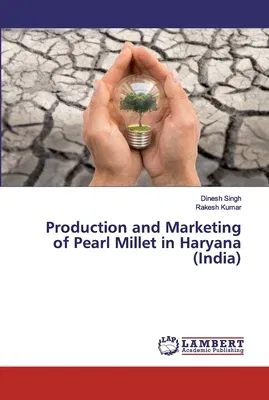Dinesh Singh
(Author)Production and Marketing of Pearl Millet in Haryana (India)Paperback, 18 March 2020

Qty
1
Turbo
Ships in 2 - 3 days
In Stock
Free Delivery
Cash on Delivery
15 Days
Free Returns
Secure Checkout
Print Length
88 pages
Language
English
Publisher
LAP Lambert Academic Publishing
Date Published
18 Mar 2020
ISBN-10
3659886599
ISBN-13
9783659886591
Description
Product Details
Authors:
Book Format:
Paperback
Country of Origin:
US
Date Published:
18 March 2020
Dimensions:
22.86 x
15.24 x
0.53 cm
ISBN-10:
3659886599
ISBN-13:
9783659886591
Language:
English
Pages:
88
Publisher:
Weight:
140.61 gm

